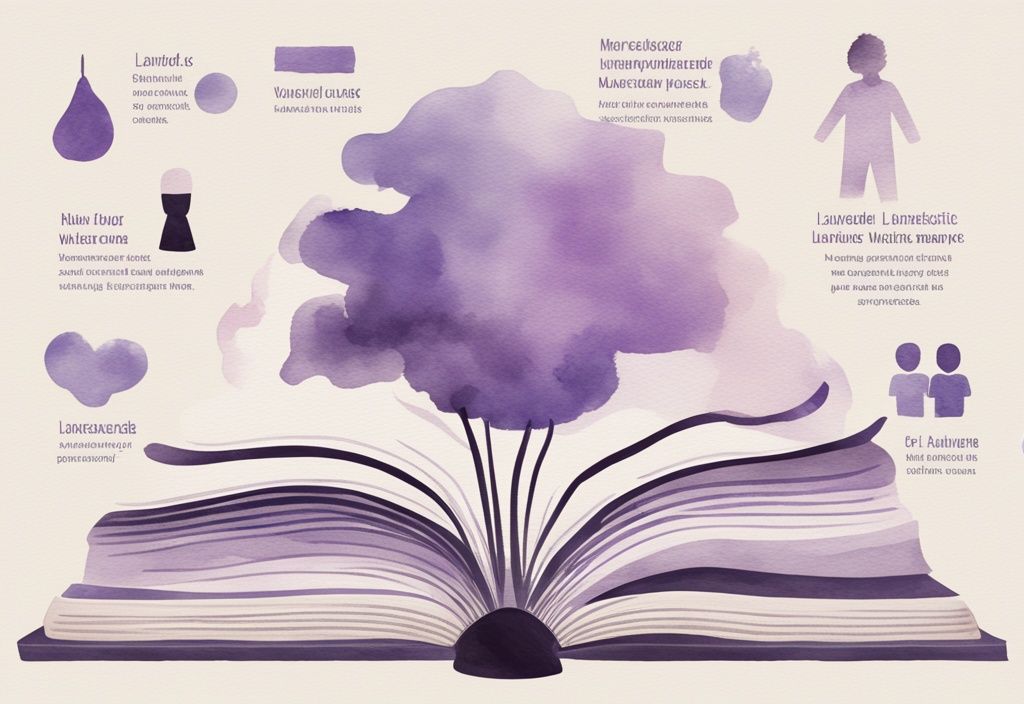Recognizing the 20 Symptoms of Narcissistic Victim Syndrome: A Guide
Unmasking Narcissistic Victim Syndrome: An Introduction
Feeling perpetually drained and lost in your own reality, could you be grappling with Narcissistic Victim Syndrome (NVS)? Perhaps, you’re here in pursuit of clarity, desperate to reclaim your self-worth. In this comprehensive guide, we delve into the most identifying 20 symptoms, offering insights to regain control over your life.
NVS, though deeply insidious, doesn’t have to define you. Elena Hartley, equipped with personal experience and psychological expertise, demystifies narcissist abuse. By offering you foundational knowledge on these tell-tale signs, she helps you embolden your awareness, a pivotal step towards healing.
In this article, you’ll find relatable metaphors, evocative narratives, and reflective questions. These tools will be instrumental in helping you identify symptoms, relate them to your experiences, and, ultimately, start your path to recovery.
Introduction to Narcissistic Victim Syndrome
Narcissistic Victim Syndrome (NVS) deeply impacts individuals who have endured sustained narcissistic abuse. This subtle yet harmful form of abuse includes ongoing manipulation, gaslighting, and emotional exploitation by a narcissist. Recognizing the 20 symptoms of narcissistic victim syndrome is crucial for beginning the journey of healing and preventing further trauma.
Consistent Manipulation, Gaslighting, and Emotional Exploitation
- Manipulation involves the narcissist twisting reality to exert control and dominance over the victim.
- Gaslighting causes the victim to question their own memories, perceptions, and judgments, leading to a profound sense of confusion.
- Emotional exploitation refers to the narcissist using the victim’s feelings and needs for their benefit, leaving the victim emotionally drained.
Grasping the intricacies of these abusive tactics is essential for identifying symptoms in victims. These forms of abuse significantly disrupt the victim’s mental state, causing them to perpetually second-guess their reality and emotional stability.
Recognizing Symptoms is Crucial for Healing and Prevention
- Confusing feelings, self-doubt, and constant anxiety are warning signs of narcissistic abuse.
- Chronic stress, panic attacks, and frequent emotional breakdowns are related symptoms that indicate deeper distress.
- Severe emotional and mental disturbances can suggest that the roots of the issues may be firmly embedded in narcissistic abuse.
Recognizing these symptoms is vital, as it aids in healing and preventing the recurrence of abusive cycles. NVS often leaves deep psychological scars, making victims susceptible to continuous manipulation if left unaddressed.
Emphasizing Awareness and Validation
- Awareness helps victims identify with and understand their experiences more vividly.
- Validating their feelings acknowledges the abuse and underscores its significant impact on their mental health.
- Encouraging victims to seek help is a crucial step in their recovery journey.
Fostering awareness about NVS empowers victims by authentically validating their struggles and traumatic experiences. This knowledge enables them to seek professional help and start rebuilding their self-esteem and emotional health.
The journey to healing commences with recognizing the 20 symptoms of narcissistic victim syndrome.
By emphasizing awareness, victims are better equipped to reframe their experiences, trust their feelings, and take meaningful steps toward recovery.
Self-Doubt and Gaslighting
Gaslighting is an insidious form of psychological abuse that leaves deep scars. By distorting reality, it undermines your confidence, making you question your sanity. This dynamic is profoundly disorienting, making it one of the many debilitating symptoms associated with Narcissistic Victim Syndrome. Understanding these effects can illuminate the path towards healing.
Doubting Your Own Reality
- Constantly Questioning Your Memories: Imagine replaying events over and over, scrutinizing every detail, only to find yourself doubting what you know to be true. As one of the 20 symptoms of Narcissistic Victim Syndrome, this relentless self-doubt makes you feel as if you’re losing grip on your reality. It’s like living in a maze where every path leads to more questions.
- Internalizing the Abuser’s Version of Reality: Over time, the narcissist’s distorted version of events can seep into your consciousness, making it challenging to trust your instincts and feelings. This mental invasion leads to a life where your own perceptions are sidelined, causing severe internal conflict and mental agony.
- Living in a State of Confusion: The constant gaslighting spins a web of confusion, making you unsure about your thoughts, memories, and even your judgment. This perpetual state of doubt contributes to an overwhelming sense of instability, leaving you feeling adrift in a sea of uncertainty.
Impact of Gaslighting on Sanity
- Feeling Mentally Unstable: Among the 20 symptoms of Narcissistic Victim Syndrome is the paralyzing feeling of mental instability. It’s a cruel outcome of ongoing denial and deceit, whittling away at your mental faculties and shaking your confidence to its core.
- Developing Severe Anxiety and Panic Attacks: Constant manipulation and the stress of second-guessing can manifest as severe anxiety, bursting forth as panic attacks that hijack your sense of security. It’s a relentless cycle of fear, leaving you perpetually on edge.
- Heightened Stress and Emotional Breakdowns: The emotional toll of living under constant psychological assault can lead to frequent emotional breakdowns. This ceaseless torment amplifies feelings of helplessness, locking you in a state of chronic stress and emotional exhaustion.
Lack of Boundaries and Manipulation
The struggle to maintain personal boundaries often lies at the heart of Narcissistic Victim Syndrome. This section delves into the ways a narcissist’s manipulation tactics can erode one’s autonomy and self-worth, contributing to 20 symptoms of narcissistic victim syndrome.
Disregard for Personal Limits
- Allowing excessive intrusion into personal space and autonomy.
- Difficulty saying no or asserting personal boundaries.
- Feeling coerced into doing things against your will.
A key symptom of Narcissistic Victim Syndrome is the profound disregard for personal limits. Imagine constantly feeling unable to say no, your boundaries dissolving under relentless pressure. Victims struggle to maintain their autonomy, the narcissist’s constant manipulation making it nearly impossible. Over time, you might feel increasingly coerced into actions that violate your will. It’s as if your life, once yours, is slipping through your fingers, controlled by someone else’s demands. Allowing such excessive intrusion can be deeply damaging, leading to immense emotional and psychological distress commonly seen among the 20 symptoms of narcissistic victim syndrome.
Triangulation Tactics
- Narcissist pits others against you to maintain control.
- Manipulating multiple individuals to isolate and destabilize you.
- Creating drama and conflict amongst your close relations to undermine your support system.

Triangulation is a strategic manipulation tactic narcissists often use to exert control over their victims. Picture being caught in a web where others are pitted against you, creating an environment of continuous conflict and tension. The manipulation doesn’t stop at one-on-one interactions; narcissists will involve multiple individuals to further isolate and destabilize their target. This results in drama and conflict among your close relations, effectively crippling your support system. If you ever wonder, does a narcissist know they are a narcissist, it’s crucial to understand their tactics of manipulation. It’s an insidious way to deepen the emotional anguish linked to the 20 symptoms of narcissistic victim syndrome, fostering an ever-growing sense of distrust and isolation.
Loss of Identity and Self-Worth
When immersed in a relationship with a narcissist, victims often experience a devastating loss of their identity and self-worth. This section delves into the profound effects of narcissistic abuse, highlighting the emotional and psychological toll it takes.
Feeling Lost
- Experiencing a profound loss of self-identity and purpose.
- Forgetting personal interests, hobbies, and passions under the narcissist’s influence.
- Feeling invisible, expendable, and irrelevant.
Losing one’s identity is a hallmark symptom of narcissistic victim syndrome, a condition experienced by those subjected to consistent narcissistic abuse. Victims often experience a profound sense of loss regarding who they are, what they value, and their purpose in life. The intense influence of the narcissist can cause victims to forget their personal interests, hobbies, and passions, as their lives become centered around the needs and demands of the abuser.
This constant adaptation to the narcissist’s world often leaves victims feeling invisible, expendable, and fundamentally irrelevant. It’s essential to understand these experiences as part of the 20 symptoms of narcissistic victim syndrome to begin the journey toward reclaiming one’s identity and self-worth.
Persistent Self-Blame
- Internalizing blame for the abuse and problems in the relationship.
- Constantly feeling responsible for the narcissist’s actions and emotional state.
- Experiencing relentless guilt even in unrelated situations.
Another significant symptom among the 20 symptoms of narcissistic victim syndrome is persistent self-blame. Victims often internalize the belief that they are at fault for the abuse and the dysfunction within the relationship.
This misplaced responsibility often leads to an overwhelming sense of guilt and a constant feeling of having to manage or even mitigate the narcissist’s actions and emotional state.
Even in situations unrelated to the narcissist, victims may feel a relentless sense of guilt, which further erodes their self-esteem and sense of self-worth. Understanding these dynamics is crucial for breaking free from the cycle of self-blame and beginning the process of emotional healing.
Each sentence tells a story, painting a vivid picture of the emotional turmoil experienced by victims. Addressing these symptoms directly is vital in fostering awareness and promoting a path to recovery, helping individuals understand they are not alone in their struggles.
Emotional Manipulation and Trauma Bonding
Understanding emotional manipulation and trauma bonding is crucial for comprehending the depth of narcissistic victim syndrome. These tactics serve as a foundation for a narcissist’s control and create an intricate web of emotional entrapment, making it challenging for victims to break free. In this section, we will explore two primary forms of manipulation: love bombing and trauma bonding.
Love Bombing
Love bombing is a calculated form of emotional manipulation often wielded by narcissists at the onset of a relationship. Initially, the narcissist floods the victim with intense affection, lavish gifts, and incessant praise, constructing an illusion of an idyllic partnership. This phase isn’t genuine; it’s strategically designed to fast-track emotional dependence and control.
- Excessive Affection and Attention: The victim is inundated with declarations of love, grand gestures, and ceaseless communication.
- Intense Bond Creation: This overwhelming affection cultivates a powerful emotional bond, making the victim feel uniquely special and cherished.
- Confusion and Control: As the relationship progresses, this initial charm turns into manipulation, leaving the victim bewildered and controlled.
Trauma Bonding
Trauma bonding is a psychological phenomenon where the victim forms a strong attachment to the abuser despite the constant abuse. This bond is strengthened by alternating moments of cruelty and kindness, creating a vicious cycle that is incredibly hard to break.
- Emotional Attachment: The victim feels a profound emotional connection to the narcissist, making it difficult to leave the relationship even when acknowledging the abuse.
- Cycle of Abuse and Reinforcement: Intermittent acts of kindness and apologies positively reinforce the bond, making the victim continually hopeful for change.
- Misinterpreting Emotions: The erratic pattern of abuse and affection can be misconstrued as sheer passion and intense love, further entangling the victim in the relationship.
Recognizing these signs is crucial for victims aiming to break the cycle of abuse and begin their healing journey. Consulting professionals who understand the intricacies of the 20 symptoms of narcissistic victim syndrome can provide essential support and guidance.
Anxiety, Depression, and PTSD
Narcissistic abuse can leave deep-seated scars, impacting mental health long after the ordeal has ended. Among the most common repercussions are chronic anxiety and clinical depression, both stemming from prolonged emotional turmoil and manipulation.
Long-term Mental Health Issues
Chronic anxiety often manifests as a continuous, unsettling worry. This state of constant vigilance drains energy and diminishes one’s ability to enjoy life. The dark shadow of depression can hover persistently, making routine tasks feel insurmountable. This hopelessness can seep into every corner of life, stifling emotional resilience, and leaving individuals in a prolonged state of mental exhaustion.
Imagine waking up each day feeling as though a heavy cloud looms overhead, never allowing rays of hope to break through. The emotional pain is relentless, making it incredibly challenging to recover from setbacks or find joy in daily interactions. This persistent mental strain often feels like an endless cycle, hard to break free from and equally hard to endure.
Developing PTSD
It’s alarming how many people, affected by the 20 symptoms of narcissistic victim syndrome, also show signs of Post-Traumatic Stress Disorder (PTSD). PTSD in this context can be particularly brutal, manifesting through vivid flashbacks and haunting nightmares. These symptoms force survivors to relive their trauma, making it hard to distinguish past pain from present reality.
Everyday occurrences can suddenly become triggers, instantly casting a person back into moments of past abuse. This persistent state of hypervigilance is exhausting, as the anticipation of potential threats or further abuse never seems to fade. Relaxation and a sense of safety feel perpetually out of reach, entrapping victims in a vicious cycle of trauma and anxiety.
Hypervigilance transforms routine experiences into high-stress situations, stripping away the sense of security that is crucial for mental recovery. This heightened alertness leads to an exhausting existence, where every moment feels like a battle against invisible enemies.
Isolation from Support Networks
Isolation is a profound symptom of narcissistic victim syndrome, meticulously engineered by the narcissist to break the victim’s ties with their support system, leaving them vulnerable and dependent.
Withdrawing from Friends and Family
-
Gradually cutting off positive relationships due to the narcissist’s influence: Picture this: a vibrant life slowly diminishing as the narcissist’s control deepens. Victims often find themselves estranged from friends and family, severing bonds that once provided joy and support. The narcissist masterfully coerces them to withdraw, creating a fortress of isolation that grows impenetrable over time.

- Feeling embarrassed or ashamed to share experiences of abuse: Imagine carrying a heavy secret that you believe no one will understand. Embarrassment and shame fester, fed by the narcissist’s manipulation. This stigma keeps victims from speaking out, further distancing them from those who care.
- Becoming increasingly isolated to satisfy the narcissist’s control: The isolation isn’t accidental; it’s a strategic move by the narcissist to tighten their grip. As victims are cut off from external influences, the narcissist thrives on their increasing dependency, crafting a reality where the victim feels entirely alone and powerless.
Lack of Trust
A lack of trust is another devastating symptom of narcissistic victim syndrome. The narcissist skillfully erodes the victim’s faith in others, fostering a chaotic inner world where paranoia thrives.
- Doubting the intentions and loyalty of friends and family: Trust, once a beacon of strength, becomes elusive. Gaslighting and deceit sow seeds of doubt and suspicion towards loved ones. The constant questioning of loyalties leaves victims feeling unsupported and alone.
- Believing others don’t understand or support you, driven by the narcissist’s skewed narratives: Imagine being trapped in a narrative where everyone around you seems like an enemy. The narcissist’s distorted reality convinces victims that their friends and family are either incapable or unwilling to offer support, deepening the chasm of loneliness.
- Further withdrawing into isolation due to paranoia and fear of betrayal: Paranoia, nurtured by the incessant manipulation of the narcissist, becomes a prison. Fear of betrayal and disappointment makes reaching out seem impossible. Consequently, victims spiral into deeper isolation, intensifying their symptoms.
Each element of isolation and eroded trust intertwines, creating a vicious cycle that empowers the narcissist while further disempowering the victim. Understanding these dynamics is the first step towards breaking free and seeking the support that is so crucial for healing.
Indecisiveness and Confidence Issues
Navigating life under the shadow of narcissistic abuse deeply impacts one’s ability to make decisions and maintain self-confidence. This section explores how such an environment breeds indecisiveness and erodes personal confidence, highlighting key symptoms that victims often exhibit.
Struggling to Make Decisions
- Paralyzing Indecision: Imagine trying to choose what to eat for dinner while feeling an overwhelming cloud of fear and self-doubt. Victims of narcissistic abuse endure this kind of paralyzing indecision daily, as every choice feels fraught with potential repercussions and lingering manipulation.
- Dependency on the Narcissist: Continuous manipulation fosters a crippling dependency on the narcissist. Victims often lean on their abuser for guidance and approval, robbing them of the autonomy required to make independent decisions confidently. Think of it as having your inner compass hijacked.
- Fear of Mistakes: A relentless barrage of criticism and undermining from the narcissist cultivates a profound fear of making mistakes. Victims become frozen, their confidence shattered, unable to move forward without dread of failure or critique.
Constant Self-Doubt
- Perpetual Second-Guessing: Living with a narcissist means living with an endless echo of second-guesses. Victims are constantly questioning their own feelings, perceptions, and judgments, leading to a life shrouded in doubt and uncertainty.
- Chronic Uncertainty: This uncertainty spills into every corner of the victim’s life. Imagine feeling unsure about every decision, big or small, perpetuating a pervasive sense of instability and confusion.
- Low Self-Esteem: Continuous devaluation by the narcissist takes a heavy toll on self-esteem. Victims often feel significantly less worthy and capable, their confidence eroded to the point where they barely recognize their own value. It’s as if they’ve been convinced they are less than what they truly are.
Persistent Guilt and Shame
Narcissistic victim syndrome can manifest in deep, persistent guilt and shame, haunting victims’ everyday lives. Understanding these manipulations is vital for healing.
Unjustified Guilt
Imagine constantly feeling responsible for someone else’s behavior—like you’re pouring from an empty cup. Victims of narcissistic abuse often accept blame for the narcissist’s actions, losing sight of reality. For those seeking to understand more, there are many helpful books for narcissists that offer insight into such behaviors. This irrational guilt, amplified over trivial matters, distorts their sense of self. One of the 20 symptoms of narcissistic victim syndrome, unjustified guilt embeds itself deeply. It’s like carrying a burden that’s not yours to bear, forcibly welded to your soul. Recognizing this manipulated guilt and understanding that it’s a fabricated emotion is crucial. This revelation is the first step towards shaking off these shackles and starting a journey towards healing.
Feelings of Worthlessness
Narcissistic abuse doesn’t just erode self-esteem; it obliterates it. Victims are left believing they are inadequate, like trapped birds convinced they can’t fly. Through relentless criticism and toxic shame, the narcissist instills a feeling of being unlovable and unworthy. These beliefs dig deep, leading to an overwhelming and painful self-view.
Another of the 20 symptoms of narcissistic victim syndrome is this internalized negative self-talk, a whisper in the mind that shouts, “You’re not enough.” Living under this manipulative cloud makes victims feel fundamentally flawed. Yet, recognizing the imposed nature of these feelings is a beacon of hope. It’s like seeing light after a prolonged night, restoring self-worth and setting the stage for a recovery that is both profound and transformative.
Physical and Emotional Exhaustion
Navigating the turbulent waters of narcissistic abuse can leave lasting scars, not just on your emotions but also on your physical well-being. Below, we delve into how this journey manifests physically and emotionally, fracturing the very foundation of your health and spirit.
Physical Symptoms of Stress
When you’re entangled in the web of narcissistic abuse, the stress you endure doesn’t just stay in your head—it seeps into your body. This relentless stress can translate into unexplained aches, chronic pain, and seemingly mysterious illnesses. How often have you felt a headache that just wouldn’t go away or struggled with digestive issues that didn’t have a clear cause? These aren’t random ailments; they’re your body’s way of reacting to continuous emotional strain.
Over time, this prolonged exposure to manipulation and emotional chaos can wreak havoc on your physical health. It’s like a silent invader that weakens your immune system, making you more vulnerable to frequent colds and infections. You might find your energy levels plummeting, your vitality draining away bit by bit, as the stress chips away at your overall well-being.
Emotional Drain
The emotional toll of dealing with a narcissist can’t be overstated. This relentless manipulation and emotional upheaval drain your emotional reservoirs, leaving you utterly exhausted. Imagine feeling so worn out emotionally that it seems like no amount of rest can recharge you. That’s the kind of burnout we’re talking about—a state where rejuvenation feels like a distant dream.
In such a drained state, even activities that once brought you joy lose their shine. It’s as if the persistent pressure and ceaseless manipulation have stripped away not only your sense of self but also your ability to experience happiness. Life becomes a blur, and emotional numbness sets in, robbing you of the richness of your experiences and your engagement in the world around you.
Conclusion
Recognizing and understanding the symptoms of Narcissistic Victim Syndrome is crucial for anyone embarking on a journey of healing and recovery. This condition manifests through various psychological, emotional, and physical symptoms borne from prolonged exposure to narcissistic abuse. Here’s a detailed look at the 20 symptoms often experienced by victims:
20 Symptoms of Narcissistic Victim Syndrome
1. Self-Doubt and Gaslighting
- Victims constantly question their memories, perceptions, and judgments, sinking into a state of confusion.
- Gaslighting leads to mental instability, severe anxiety, and emotional breakdowns.

2. Lack of Boundaries
- Narcissists disregard personal limits, resulting in victims having trouble asserting themselves or saying no.
- Triangulation tactics create drama and conflict, isolating and destabilizing the victim.
3. Loss of Identity
- Victims experience a profound loss of self-identity and purpose, feeling invisible and expendable.
- Persistent self-blame makes one internalize the blame for both abuse and relationship problems.
4. Emotional Manipulation
- Love bombing initially overwhelms the victim with affection, then shifts to controlling behavior.
- Trauma bonding creates a strong attachment, making it hard to leave despite the abuse.
5. Anxiety and Depression
- Chronic anxiety and depression are common due to sustained psychological abuse.
- Victims often show PTSD symptoms like flashbacks, hypervigilance, and triggers that remind them of their trauma.
6. Isolation from Support Networks
- The tactics employed by narcissists lead victims to withdraw from friends and family.
- This further fuels feelings of shame, embarrassment, and mistrust towards others.
7. Indecisiveness and Confidence Issues
- Narcissistic abuse makes victims struggle to make decisions, feeling dependent on the narcissist for approval.
- This is compounded by constant self-doubt and low self-esteem.
8. Persistent Guilt and Shame
- Victims feel unjustified guilt, taking responsibility for the narcissist’s behavior.
- Toxic shame fosters feelings of worthlessness, making them believe they are fundamentally flawed.
9. Physical and Emotional Exhaustion
- Stress from the abuse often results in unexplained physical ailments and chronic illnesses.
- Emotional drain insidiously saps joy and the ability to engage in previously enjoyed activities.
Each of these symptoms forms a critical part of understanding the full spectrum of Narcissistic Victim Syndrome, and acknowledging their presence is the first step towards healing. Seeking professional help, setting firm boundaries, and rebuilding one’s self-worth are essential moves towards recovery.
Empowerment begins with a deep awareness of these abusive dynamics and a commitment to embracing one’s truth. Taking steps toward professional guidance and self-affirmation can rebuild the foundation of one’s life, allowing for a restored sense of identity, self-esteem, and overall well-being. By addressing these symptoms comprehensively, victims can navigate away from the shadows of abuse and step confidently towards a healthier, empowered future.
FAQ: Navigating Narcissistic Victim Syndrome
What is Narcissistic Victim Syndrome?
Narcissistic Victim Syndrome is a profound condition that affects individuals who have endured relentless narcissistic abuse over extended periods. The symptoms are far-reaching, encompassing psychological torment, emotional distress, and even physical ailments due to the pervasive manipulation and maltreatment they’ve experienced.
How can I tell if I am a victim of narcissistic abuse?
Recognizing the signs is crucial. You might find yourself gripped by persistent self-doubt, anxiety, and depression. Feelings of isolation and overwhelming guilt are common. Be aware of manipulative tactics like gaslighting, triangulation, and emotional exploitation that may be employed in your relationships, leaving you questioning your reality.
What steps can I take to heal from Narcissistic Victim Syndrome?
Embark on your healing journey by seeking therapy or counseling, especially from professionals who specialize in narcissistic abuse. Reaching out to trusted friends and family can provide a sense of reconnection. Prioritize self-care routines—small, nurturing acts to reclaim yourself. Setting firm boundaries and focusing on regaining your self-identity and self-worth are essential steps in recovery.
Are there treatments available for those suffering from symptoms of Narcissistic Victim Syndrome?
Absolutely, several effective treatments can significantly aid recovery. Cognitive Behavioral Therapy (CBT) and trauma-focused therapy are highly recommended. Additionally, joining support groups and tapping into self-help resources offer valuable emotional support and community, reinforcing that you are not alone in this journey.
How can I support a loved one who might have Narcissistic Victim Syndrome?
Supporting a loved one starts with listening non-judgmentally and validating their experiences. Encouraging them to seek professional help can make a substantial difference. Help them find relevant resources and be patient as they navigate their complex healing journey, offering your unwavering support and understanding throughout.














Post Comment